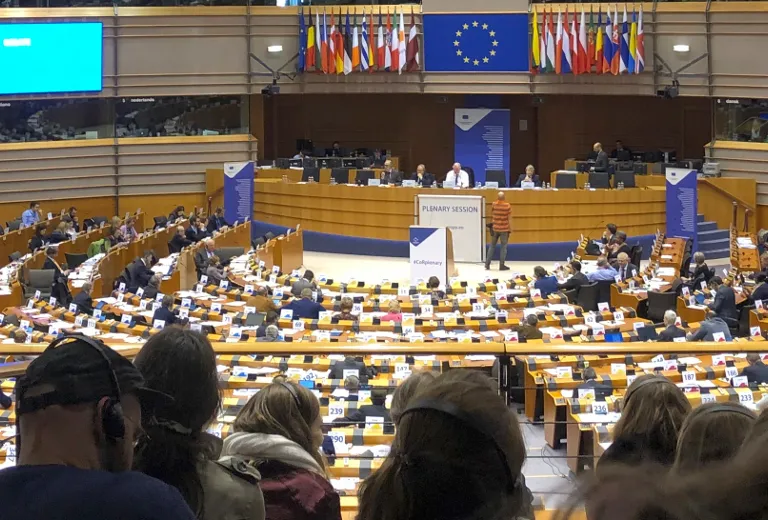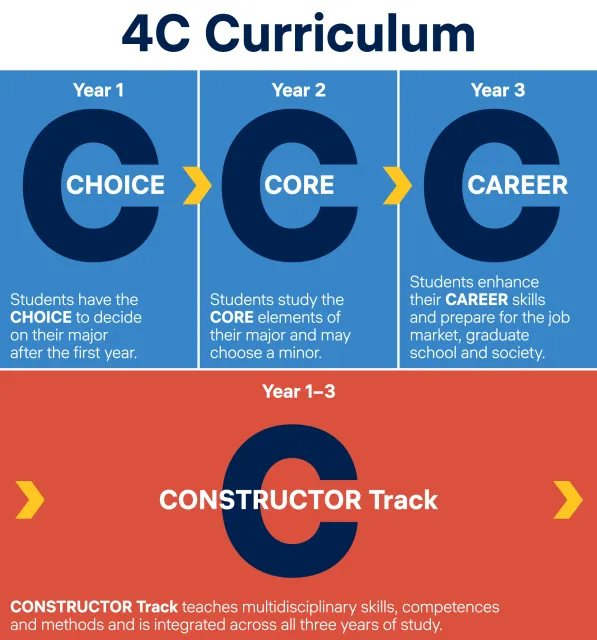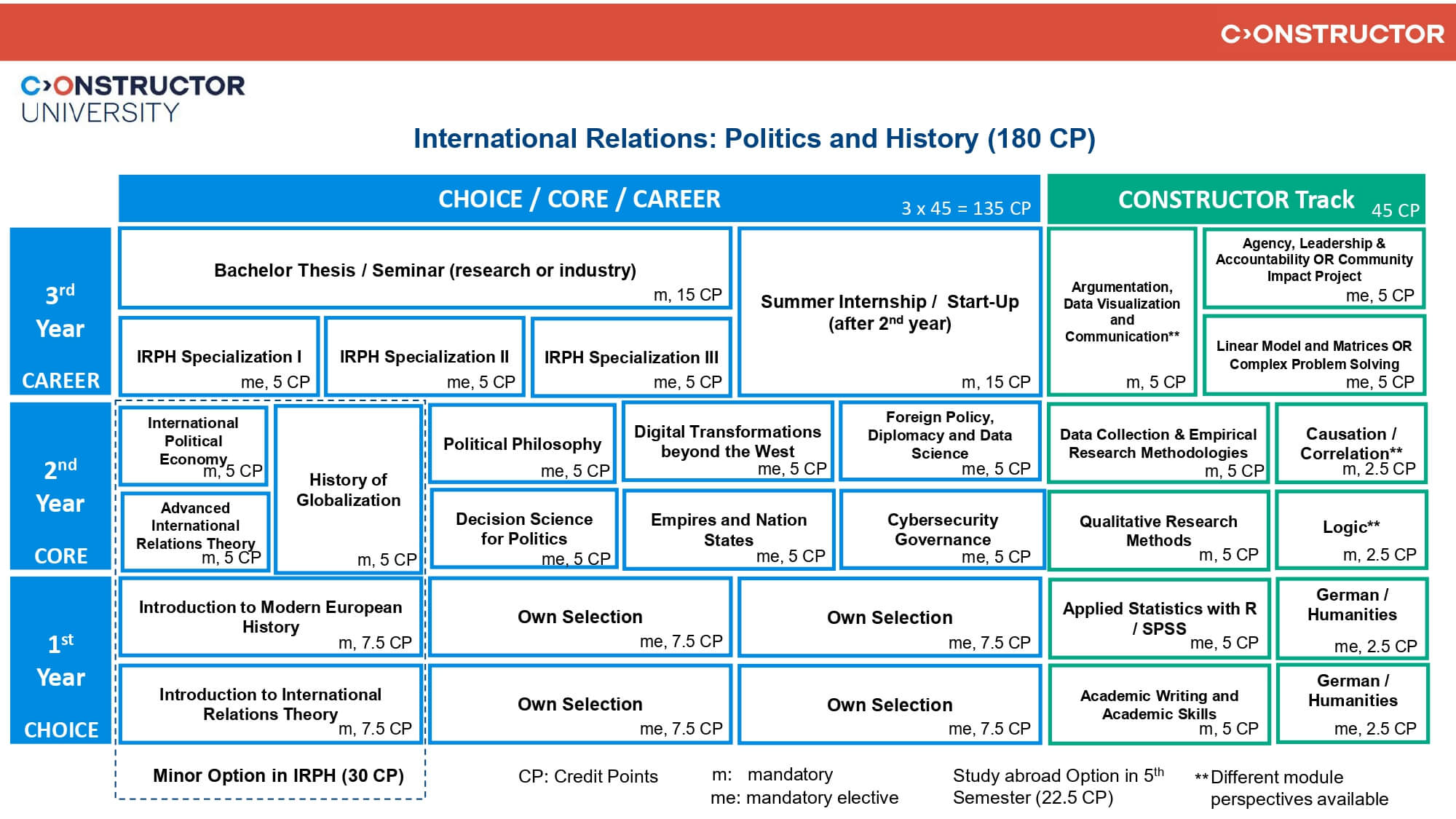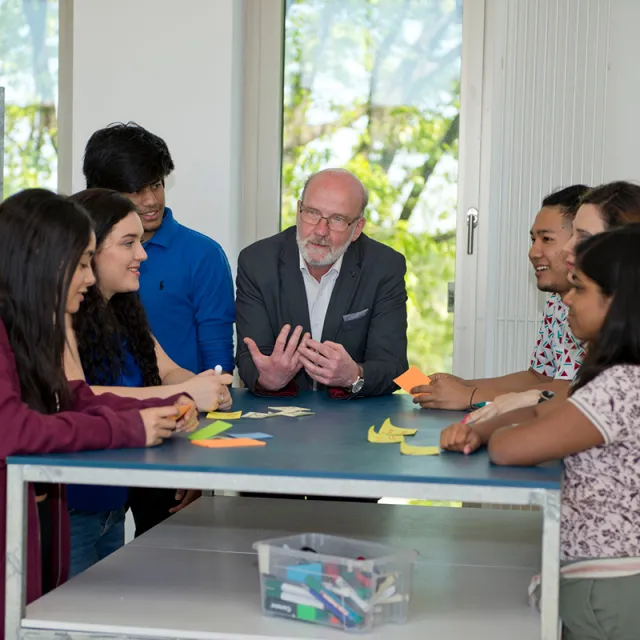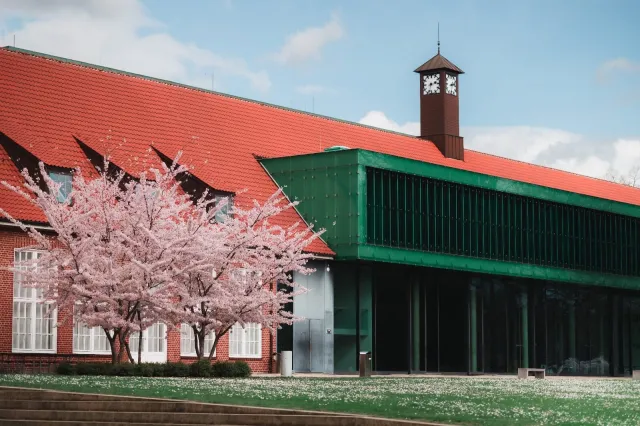In their second year, students take modules with a total of 45 CP from in-depth discipline-specific CORE modules. Building on the introductory CHOICE modules and applying the methods and skills students have already acquired , these modules extend students’ critical understanding of the key theories, principles, and methods in their major.
To pursue IRPH as a major, students take the following mandatory modules (15 CP):
- CORE Module: International Political Economy (m, 5 CP)
- CORE Module: Advanced International Relations Theory (m, 5 CP)
- CORE Module: History of Globalization (m, 5 CP)
At least 15 CP from the following mandatory elective CORE modules need to be acquired:
- CORE Module: Empires and Nation States (me, 5 CP)
- CORE Module: Political Philosophy (me, 5 CP)
- CORE Module: Foreign Policy, Diplomacy and Data Science (me, 5 CP)
- CORE Module: Digital Transformations beyond the West (me, 5 CP)
- CORE Module: Decision Science for Politics (me, 5 CP)
- CORE Module: Cybersecurity Governance (me, 5 CP)
The remaining 15 CP can be selected according to interest and/or with the aim of pursuing a minor in a second field of studies, or students complement their studies by taking all of the above listed mandatory-elective CORE modules.
In the “International Political Economy” module, students focus on the relationship between economics and international relations since the 1970s, with particular emphasis on the rise of China and East Asia.
The “Advanced International Relations Theory” module examines the past 60 years of theorizing about world politics and develops students’ debating skills.
The “History of Globalization” module explores the historical roots and emergence of globalization and studies the interconnectedness of social, economic, political, and cultural spheres, especially during the modern era.
The “Empires and Nation States” module introduces students to the historical events, ideas, and processes that have shaped modern politics and societies.
In the “Political Philosophy” module, students use philosophical tools such as conceptual analysis, formal and informal logic, and thought experiments to study the implications and tensions of our most important political ideas, especially as they interact with contemporary society.
In the “Foreign Policy, Diplomacy and Data Science” module, students are introduced to foreign policy concepts and acquire practical skills –including data science techniques – that diplomats, foreign policy and (international) civil servants employ in their professions.
In the “Digital Transformations beyond the West” module, participants focus on the ongoing digital transformations in Asia, and examine whether and how state actors as well as ‘Big Tech’ companies strive to gain influence over their own and other societies through dominance of information and production networks.
In “Decision Science for Politics”, students examine political decision-making from a variety of perspectives, including psychology, economics, and political science. Students will learn core theories as well as several key decision-making tools.
In “Cybersecurity Governance”, students consider which threats to cybersecurity have emerged, analyze the global governance efforts that have been made to tackle these threats, and reflect on how these efforts could be organized differently.
